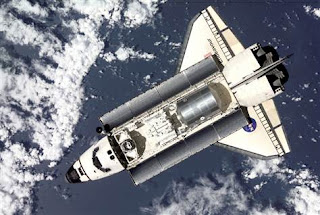
On June 1 the shuttle Endeavour glided to its final landing at the Kennedy Space Center in Florida. If all goes according to NASA’s current plans, the final shuttle mission, the flight of Atlantis on STS-135, will launch on July 8.
When Atlantis lands, it will mark the end of the operational life of a remarkable spacecraft. It will also mark the end of all American manned spaceflight, at least for the next few years. Leaving aside the bitter arguments over future NASA policy, it is worthwhile to look back to see why the shuttle was developed and what lessons we can draw from the program.
Many in the space industry consider the Space Shuttle to have been a major failure. Many experts see the whole program as a waste of time, money, and worst of all, of fourteen precious lives in two major accidents in 1986 and 2003. The shuttle certainly never lived up to the 1970s-era hype that promised that it would become the DC-3 of space. In the 1930s, the DC-3 made commercial airline travel safe and economically viable. The shuttle was supposed to do the same for spaceflight. It would fly as often as once a week and radically reduce the cost of getting into orbit. By this standard it failed miserably.
Read More
When Atlantis lands, it will mark the end of the operational life of a remarkable spacecraft. It will also mark the end of all American manned spaceflight, at least for the next few years. Leaving aside the bitter arguments over future NASA policy, it is worthwhile to look back to see why the shuttle was developed and what lessons we can draw from the program.
Many in the space industry consider the Space Shuttle to have been a major failure. Many experts see the whole program as a waste of time, money, and worst of all, of fourteen precious lives in two major accidents in 1986 and 2003. The shuttle certainly never lived up to the 1970s-era hype that promised that it would become the DC-3 of space. In the 1930s, the DC-3 made commercial airline travel safe and economically viable. The shuttle was supposed to do the same for spaceflight. It would fly as often as once a week and radically reduce the cost of getting into orbit. By this standard it failed miserably.
Read More
No comments:
Post a Comment